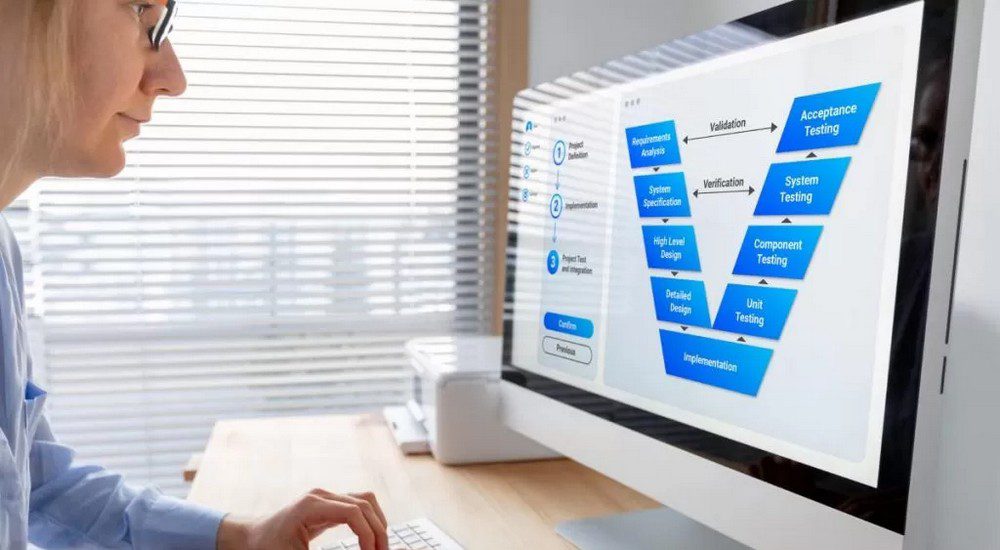Blog
Articles to grow your career
Article
Ways to Learn Programming Fast
Have you ever noticed that learning something new is always a big deal? We’ve collected tips from experts and ordinary people on how to learn fast.
If you want to learn how to create cool applications, then, obviously, you cannot do without knowledge of modern programming languages as the project itself is based on the code. The quality and performance of the product will depend on how well you know the required language, and hence its success among users and profit.
No One Is Hopeless
The problem is that most people do not understand how their brains work, and therefore they do not approach the learning process correctly. If you know which type of learning is best for your brain, you will not need to spend time on effective, but painful ways and you will not lose your motivation.
Learn the Basic Principles
It is necessary to start learning any language from the basics. Without this, it is not possible to learn complex things fast. It’s the same in programming languages: when you decide what you want to do and choose a language to study, you will need to immerse yourself in such things as functions, variables, constructs, data arrays. The sooner you figure out how they work, the easier it is going to be.
It is important not to focus on many languages at once, because they are different. When it turns out that you know one language at the Junior level, you can move on to the second, if you deem it necessary. Otherwise, you risk being a student forever.
Make the Most of Resources
As we said above, it is impossible to learn the language completely, and it will take some time to understand the principles of its work. Try to approach the new subject holistically, for example, combining online courses, lectures, articles, or books. This advice may sound strange, but with a responsible approach to classes in open webinars, you can learn rare and useful things that you are unlikely to find in books.
More Practice
For the vast majority of novice programmers, the first application is “HelloWorld”. There is no need to explain that this is only the first step, and you should not stop here. Sometimes it may seem that programming is extremely boring, but if you are not lazy and work hard on improving the code for a long time, you can quickly achieve a result.
By the way, if someone says that Python is an extremely simple language that will take a minimum of time to learn, know that it is not. Any language requires perseverance and the ability to learn from your mistakes.
Try to set aside a few hours a week for practice of your skills. This is one of the main factors that will allow you to learn quickly.
Communicate With the Community
Each popular programming language has a community that exchanges experience, meets at lectures, conferences, meet-ups. If it seems to you that you will not give up on this language, find people who share the same opinion. These can be social networks, forums, Telegram chats. Moreover, if you have any questions, there is a high probability of getting help in proofreading the code or advice that will contribute to the pumping of knowledge and skills.
Don’t Be Afraid to Be Wrong
Think of programming as creativity, and the computer and language as easel and paint. When it seems that everything new has already been tried out, improve the work of existing programs, and then come up with new ones again. The most important thing is not to be afraid of wasting time and not to be upset about failure.
Practice Is More Important Than Theory
Try to follow this technique: when the most minimal knowledge has already been obtained, only 20% of the time is worth spending on learning new ones, and 80% on honing what you learned by developing real applications. It will not be possible to master a large amount of information about programming languages right away. It is similar to learning a foreign language: most people need at least three repetitions to memorize the meaning of a single word. But in addition to memorization, you also need to learn how to apply in real situations that are not simulated for learning.
Don’t Overwhelm Yourself With Books
Continuing to the previous point, we advise you not to waste time on books. At all. Most of them were written more than ten years ago, and after all, during this time much has changed. Moreover, reading books can be tiresome and take up the time allocated for practice.
There is an opinion that books are a means that allows you to avoid performing real tasks, but this is the road to nowhere. Instead, it is better to read profile articles, longreads, which write about the application of skills in practice.
Try Taking Courses
Online courses are the most affordable and modern way to quickly learn new things. They are suitable for most people, especially if they offer a certificate. This is great motivation. Someone can effectively study with paid courses because they do not want to throw their money away. Courses are usually more effective than self-study. This way you learn to control yourself and save time by practicing when it is suitable for you.
Work on Motivation
There must be a specific, not an abstract reason for learning programming. For example, you have a startup idea that others don’t believe in, and you value it at billions of dollars. This motivates more than just “everyone needs programmers, so I will be a programmer.”
If you are eager to learn, then the tool (technology or programming language) is easier to learn, and you enjoy not only the result but also the process. By the way, you shouldn’t be overly self-confident at an early stage and say something like “I will never make websites”. If it didn’t work out once, it doesn’t mean that it will never work.
Do you want to join us?
Leave an application and get a free consultation from our manager.
- Help in choosing a direction
- Course consultation
- Additional materials for the start
Use Kolb’s Learning Model
This is a method of self-education for the motivated when actions are performed in stages. First, there is the acquisition of basic knowledge, then their comprehension, understanding of what can be done with it, and at the end, experimentation. If you follow this model when studying each separate block of new information, then you will not get bored, and the material will not only stay in your head, but you will also learn how to apply it.
Get Enough Sleep
When you go to bed, your brain cells shrink, allowing you to flush out the toxins accumulated during the day. This means that if you deprive yourself of sleep before an important event, it is likely that it will not go as well as it could.
The second reason is the ability of our brain to process acquired memory. That is, the material learned during the day must be processed, and this happens best during sleep. It turns out that sleep helps to learn quickly, and its lack works the opposite.
What If You Take Nap Breaks During the Day?
This can be helpful, but it depends on the person. You shouldn’t substitute this for a night’s sleep if you are not one of the people with the short sleep gene that allows them to get enough sleep in four hours. Everyone else is advised to sleep at least seven hours, at least half of which − at night.
Music While Learning Can Be Dangerous
This is probably a good idea, the main thing is to avoid lyrical and too loud melodies. Please note that while preparing for the test along with music, you might lack it on the exam, which means that the conditions are less comfortable and the risk of making mistakes will increase.
Cramming Is Not an Option
Cramming is not a good way to learn anything., only to remember for some time. By the way, most people are designed so that the brain is in a productive state for about four hours a day, and the rest of the time there is a struggle with laziness. Four hours of meaningful learning is more useful than an hour of cramming.
Train Your Memory
No, not the one that will allow you to cram more. For our purposes, there are two long-term ways of storing information − through facts and visual representation.
Remembering a fact can be compared to trying to put leaked toothpaste back into a tube − it is extremely difficult to keep impractical information in your head for a long time. Evolution has eased the suffering of people: we have learned to imagine well, and remembering facts in conjunction with visual representation is easier.
Change the Physical Location of Learning
It is scientifically proven that changing locations during the learning process helps. The brain is like a sponge: reading a book and performing tests in the library, it gets used to a calm atmosphere, and if you suddenly need to repeat the material in less comfortable conditions, for example, on the subway, it will resist. Don’t let him get used to it.
Learning the Material and Preparing for the Test Are Different Processes
When there is a clear goal in the form of an exam score, there is a strong motivation to learn quickly. But a serious disadvantage of tests is that thinking practically does not work.
When preparing for the test, it is important to apply the quick start technique from the most difficult topic. Start with the hardest task, move on to a simpler one if you don’t know how to solve it, then return to the first stage and repeat this process until you decide to go to bed (just kidding). The bottom line is that you are walking in circles, each problem seems to be equally difficult because the brain wants to move quickly to the next, simpler stage.
Be Proactive
Designer Artemy Lebedev spoke about how he received the first orders: first, he made, and then he offered. Of course, first of all, he thought about the chances of success, but from this situation, a lesson should be learned that no one will give a hand to you. Later, when others notice you, you don’t need to take unnecessary actions. And while you are learning, take on any practical projects, participate in internships, create programs without selfish intent.
Pomodoro Helps Fight Procrastination
One of the best ways to combat laziness is the Pomodoro Technique. This is how it works: you set a timer for 25 minutes, spend this time as efficiently as possible, and every time you are distracted, you try to return to the process, because time is limited.
The most important part comes at the end: take a break and reward yourself (you can have a snack, for example). The point of the breaks is that during a short rest period (usually up to five minutes), information continues to be assimilated. After every fourth pomodoro, increase the rest time to 30 minutes.




